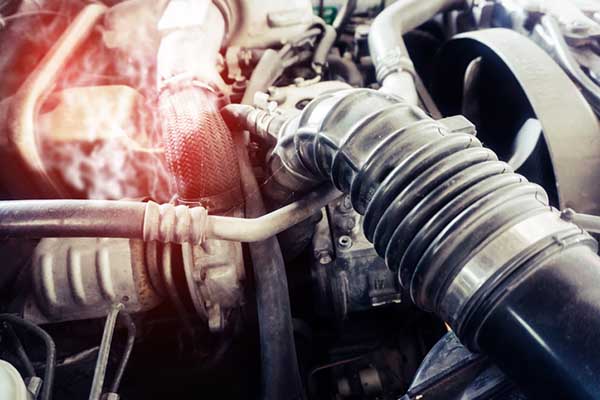The Top 5 Reasons for Engine Overheating that Grads of Mechanic Courses Encounter

If a car’s engine surpasses its typical operating temperature range of 90°C to 104°C, then it may be at risk of overheating. For drivers, having to deal with an overheating engine is no walk in the park. When an engine begins to overheat, it’s advisable to pull over immediately and seek the assistance of a mechanic.
The most common causes behind engine overheating have to do with the system that moves coolant through a car’s engine to remove the heat it generates. What are the most common ways this system can break down? Keep reading to find out!
Malfunctioning Water Pumps Are the Ultimate Bad News for Car Engines
The most important part of an engine’s cooling system is its water pump. This component propels the flow of coolant throughout the entire system, so if it stops working, then engine overheating is almost inevitable.
There are a number of reasons why a water pump may not work properly. For example, it could be because of rust and corrosion, or because of a buildup of deposits on the pump. Sometimes the problem may not have to do with the pump itself but with an improperly installed or broken serpentine engine belt. This belt turns the pump, so if there is something wrong with it, it’s bad news for the engine.
A Stuck Thermostat Prevents Engine Coolant From Getting Its Job Done
Another very important component in an engine’s cooling system is its thermostat. Graduates of mechanic courses know this piece of hardware monitors engine temperature, but that it also does way more than that too. In fact, the thermostat is a valve that regulates the flow of coolant to the engine. If the engine gets too hot, then the thermostat pops open its valve to let coolant flow to the engine and do its magic. If it gets stuck in a closed position, however, then the coolant can’t enter and the engine could rapidly overheat.
Radiator Problems Cause Engine Heat to Get Stuck in the System
When the thermostat is working properly and the coolant is able to progress along its journey to the engine, then the problem leading to overheating may be with the radiator. The radiator fulfills the functions of cooling down the hot coolant coming from the engine block and returning it to the system so it can run its course once more. If there happens to be something wrong with the radiator or the fan that sits behind it, then the temperature of the coolant may remain too high.
Grads of Mechanic Courses Know Engines May Overheat Due to Blocked or Leaking Coolant
On occasion, the problem doesn’t lie with one of the primary organs of a car’s cooling system but in the supporting piping. In this case, the problem may manifest itself as a leak. These can be difficult to find. If a leak occurs in a car’s cooling system, not only does it let precious coolant escape, but it can also cause air to get sucked into the system and create a blockage that may prevent coolant from circulating. Alternatively, a cooling system’s piping can also get blocked up because of rust or engine sediment. Either way, it doesn’t bode well for the engine.
The Wrong Type of Coolant Can Prevent the Cooling System From Working Properly
Something you learn when you become a mechanic is that occasionally engines overheat not because of a fault in the hardware of the cooling system, but because of the coolant itself! If coolant isn’t diluted correctly or if it’s the wrong type for a particular engine, then the engine is liable to overheat. The wrong coolant or coolant mixture could even lead to damaging key components of the cooling system. That’s why, as a mechanic, you should always advise your clients to consult their vehicle’s manual to make sure they’re using the proper coolant.

Looking for the perfect auto mechanic apprenticeship in Cambridge?
Contact Automotive Training Centres to inquire about our programs!

